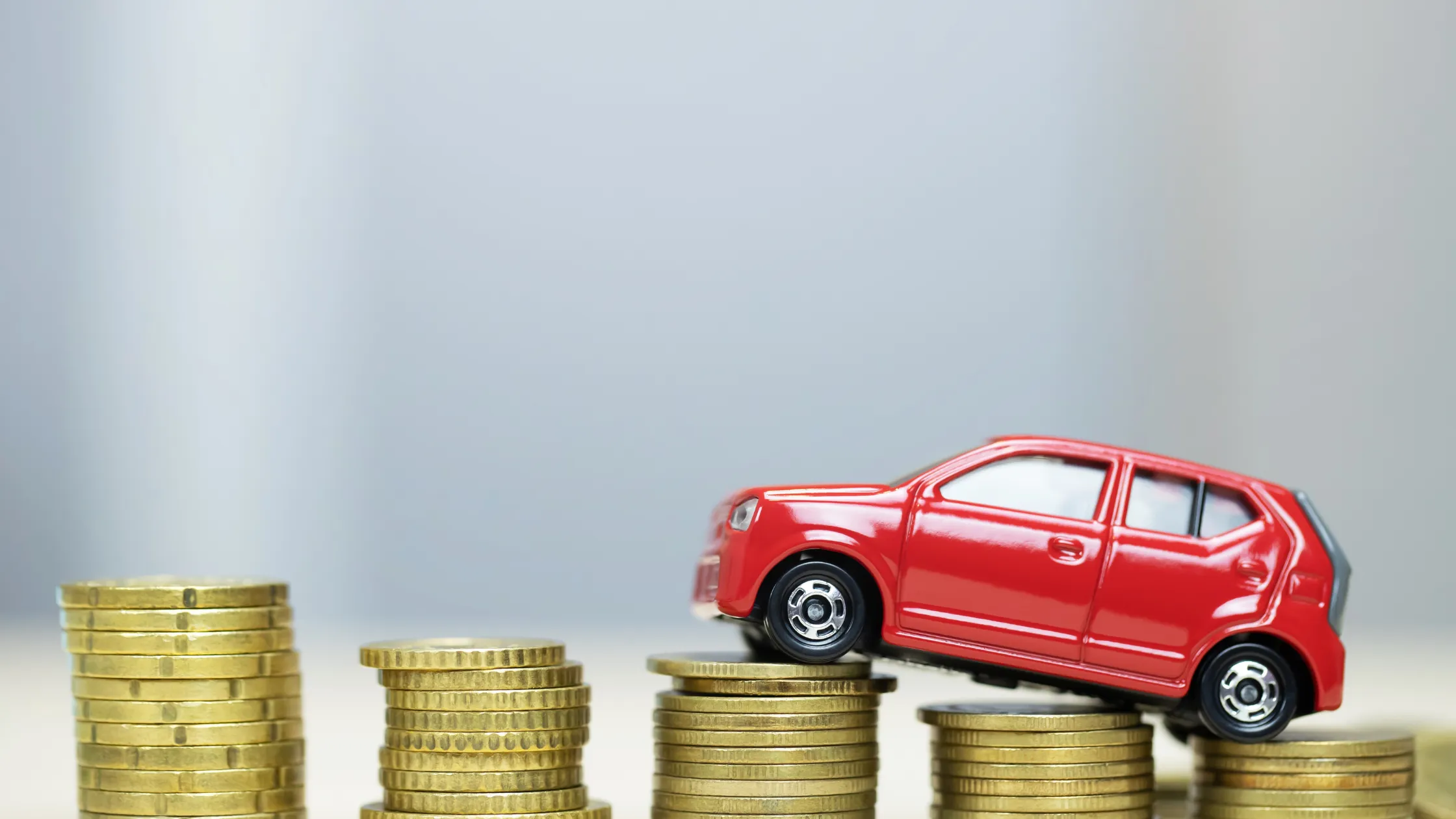How to Organize Yourself to Buy a Car Without Going into Debt
Buying a car without going into debt: Buying a car is a dream for many people, but it can turn into a financial nightmare if not planned carefully.
Advertisements
The idea of purchasing a vehicle without compromising your finances may seem challenging, but with smart strategies and organization, it's possible to achieve this goal without going into debt.
In this guide, we'll explore step-by-step how to prepare to buy a car without falling into financial traps.
This ensures that your decision is sustainable and beneficial in the long run.
1. Set a Realistic Budget

Before heading to dealerships or researching models, it's essential to establish a clear and realistic budget.
This means analyzing your personal finances, including income, fixed and variable expenses, and determining how much you can spend without compromising your standard of living.
A common mistake is overestimating your ability to pay, which can lead to unnecessary debt.
Additionally, it's important to consider not only the value of the car, but also associated costs such as insurance, vehicle tax, maintenance, and fuel.
A good practice is to set aside around 20% of the vehicle's value for these extra expenses.
This way, you avoid unpleasant surprises and ensure that the car doesn't become a financial burden.
Finally, use financial planning tools, such as spreadsheets or apps, to track your spending and adjust your budget as needed.
This will help you stay in control of your finances and make more informed decisions.
2. Research and Compare Options

Once you've set your budget, it's time to research the models that fit your budget.
The internet is a powerful ally in this process, offering a wealth of information on prices, specifications, and user reviews.
Compare different makes and models, taking into account factors such as fuel consumption, maintenance costs, and resale value.
Another important aspect is deciding between a new or used car.
While a new vehicle offers a warranty and a lower risk of mechanical problems, a used car can be a more affordable option, as long as it is well evaluated.
Regardless of your choice, it's essential to carry out a thorough inspection and, if possible, enlist the help of a trusted mechanic.
Read also: Content Creation: How to Turn Your Passion into a Business
Also, don't limit yourself to a single dealership or salesperson.
Visit different establishments, negotiate prices and payment terms, and be open to opportunities that may arise.
Thorough research can result in significant savings and help you find the ideal car within your budget.
3. Plan Financing Carefully

If you choose to finance your car purchase, it's crucial to understand all the conditions involved.
Interest rates, payment terms and installment amounts must be carefully analyzed.
Poorly planned financing can result in long-term debt and exorbitant interest rates, compromising your finances for years.
A smart strategy is to try to increase the down payment, thus reducing the amount financed and, consequently, the interest paid.
Additionally, consider alternatives such as loans with lower interest rates or even the possibility of purchasing outright, if funds are available.
Remember that the lower the amount financed, the lower the total cost of the car.
Finally, read the contract carefully and make sure you understand all the clauses before signing.
++ The Importance of Accounting in Financial Risk Management
If you have any questions, consult a financial expert or lawyer.
Transparency is essential to avoid unpleasant surprises in the future.
4. Consider the Total Cost of Ownership

When planning to buy a car, many people focus only on the purchase price, neglecting the costs associated with owning the vehicle.
These costs include insurance, taxes, maintenance, fuel, and depreciation. Ignoring these factors can lead to a tight budget and, eventually, debt.
To avoid surprises, it's important to estimate the total cost of ownership before making your final decision.
Use online calculators or consult experts to get a realistic projection.
This will help you choose a car that not only fits your initial budget but is also sustainable in the long run.
Also, consider the vehicle's depreciation, especially if you plan to sell it in the future.
Some models lose value more quickly than others, which can affect your financial planning.
Choosing a car with good value retention can be a smart decision.
5. Save for the Down Payment
One of the best ways to buy a car without going into debt is to save for a substantial down payment.
The larger the down payment, the lower the amount financed and, consequently, the interest paid over time.
This not only reduces the total cost of the car, but also lowers your monthly payments, easing your budget.
To save effectively, set monthly goals and create a savings plan dedicated to your car purchase.
Reduce unnecessary expenses and allocate part of your income for this purpose.
++ Artificial Intelligence and Finance: How AI is Changing the Financial Market
Discipline is essential to achieving your goal without compromising other areas of your financial life.
Additionally, consider investing your savings in low-risk investments, such as Treasury Direct or CDBs, to earn some income while accumulating the necessary funds.
This can speed up the process and increase your down payment, providing better conditions at the time of purchase.
6. Evaluate Mobility Alternatives
Before deciding to buy a car, it's worth considering mobility alternatives that can meet your needs without requiring such a significant investment.
Options like public transportation, carpooling, cycling, or even renting cars for specific occasions can be more economical and sustainable.
If you really need a car, consider purchasing a simpler or used model that meets your basic needs without breaking the bank.
Remember that the goal is to purchase a vehicle without going into debt, and this may require some compromises in terms of comfort or status.
Finally, reflect on the real need for a car.
In many cases, the decision to purchase a vehicle is influenced by emotional or social factors rather than practical need.
Assessing your priorities and needs can help you make a more informed and financially sound decision.
7. Negotiate Smartly
Negotiation is a crucial step in the car buying process, and knowing how to negotiate can result in significant savings.
Research market prices, be aware of available promotions and discounts, and don't be afraid to ask for a lower price.
Dealers and sellers often have room for negotiation, especially if you're willing to close the deal quickly.
In addition to the price, also negotiate payment terms, interest rates, and additional benefits, such as free inspections or included insurance.
Every detail can make a difference in the total cost of the car and your financial health.
Be prepared to walk away if the offer isn't right, and remember that there are always other options available.
Finally, stay calm and don't be pressured by aggressive sales tactics.
The decision to buy a car should be made based on clear information and careful analysis, not on impulses or external pressure.
8. Keep an Emergency Fund
Even with all the planning, unforeseen events can occur after purchasing a car.
Mechanical problems, accidents, or unexpected expenses can jeopardize your finances if you're not prepared.
Therefore, it is essential to maintain an emergency fund dedicated to covering these expenses.
Your emergency fund should be enough to cover at least three to six months of essential expenses, including car expenses.
This provides a financial safety net, allowing you to weather unexpected events without having to resort to loans or credit cards.
Additionally, consider purchasing comprehensive insurance that covers not only vehicle damage but also 24-hour roadside assistance and other eventualities.
Good insurance can prevent unexpected expenses and provide greater peace of mind in your daily life.
9. Review Your Finances Regularly
After purchasing a car, it is important to maintain strict control over your finances.
Regularly review your budget, track your spending, and adjust your priorities as needed.
This will help ensure that the car doesn't become a financial burden and that you stay on the path to stability.
Also, be on the lookout for opportunities to refinance or renegotiate debt if necessary.
Interest rates can fluctuate over time, and renegotiating your mortgage can result in significant savings.
Stay informed about market conditions and always be on the lookout for improvements.
Finally, celebrate your achievements and stay focused on your long-term financial goals.
Buying a car without going into debt is a huge accomplishment, and with planning and discipline, you can continue building a solid and sustainable financial future.
Table of Costs Associated with Buying a Car
| Item | Average Cost (R$) | Observations |
|---|---|---|
| Car Price | 40.000 – 100.000 | Varies depending on model and year |
| Insurance | 1.500 – 5.000 | It depends on the driver's profile and the vehicle |
| IPVA | 2% – 4% of the value | Varies by state |
| Annual Maintenance | 1.000 – 3.000 | Includes revisions and replacement parts |
| Monthly Fuel | 300 – 800 | It depends on consumption and mileage |
| Annual Depreciation | 10% – 20% | Varies depending on brand and model |
Buying a car without going into debt: Conclusion
Buying a car without going into debt is an achievable goal with planning, research and discipline.
By setting a realistic budget, researching options, carefully planning financing, and considering the total cost of ownership, you can make a financially sound and sustainable decision.
Additionally, saving for a down payment, negotiating smartly, and maintaining an emergency fund are essential strategies to ensure that the car doesn't become a burden.
Remember that buying a car is a significant investment, and every decision should be made based on clear information and careful analysis.
With the right strategies, you can achieve your dream of owning a car without compromising your finances, ensuring peace of mind and security in the long run.
